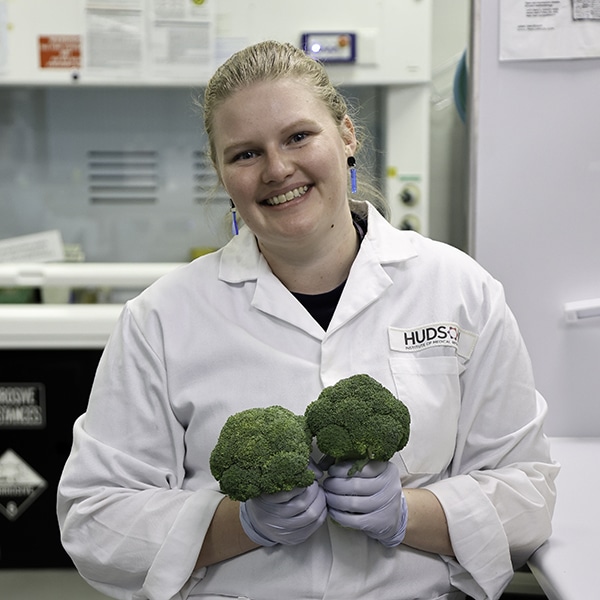Latest research into the human microbiome begins to untangle how broccoli can alter healthy gut bacteria.

Cruciferous vegetables, including broccoli, cauliflower, brussels sprouts and kale, are often recommended due to the presence of the antioxidant sulforaphane, which is thought to be beneficial for general health and wellbeing and in treating diseases such as cancer.
Dr Emily Gulliver led a team at Hudson Institute whose findings have been published in the Journal of Functional Foods, starting to understand how sulforaphane can change bacteria in the gut.
This research is the first to examine the effects of sulforaphane on bacteria derived from humans in conditions that replicate those of the gastrointestinal tract.
Dr Gulliver said sulforaphane is known to be beneficial in the treatment of many conditions, and is orally administered, so may also be beneficial to gut bacteria.
“Our work examined the effect of sulforaphane on the growth of bacteria found in the gastrointestinal microbiome, in conditions similar to that of the gut,” Dr Gulliver said.
“We know that in the presence of oxygen sulforaphane can act as an antimicrobial, killing bacteria that are present, however when we eat vegetables the sulforaphane interacts with the bacteria in an environment where there is no oxygen present.
“We have shown that without oxygen sulforaphane can actually increase the growth of certain bacteria, which may change the community within the gut.
“Further research is required before we can understand the precise impacts on the gut microbiome – until then, follow your parents’ advice and eat your broccoli!”








